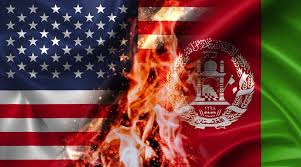ISLAMABAD ( Web News )
What are the current challenges in Afghanistan’s peace process, particularly with a complete US withdrawal on the horizon by September 2021, and will the Afghan government be able to secure civil rights for all its citizens? Former Foreign Secretary Jalil Abbas Jillani, Senior Research Fellow Jinnah Institute Zahid Hussain, and Honorary Senior Fellow Jinnah Institute Ammara Durrani weigh in on the developing situation in the region, with a focus on Pakistan’s security interests, on prospects for a ‘lasting peace agreement’ between Kabul and the Afghan Taliban.
Jalil Abbas Jilani
Former Foreign Secretary
The unfolding situation in Afghanistan is fraught with risks and uncertainty. The absence of a national consensus in support of the peace process coupled with a spurt in violence, the resurgence of ISIS/Al-Qaeda, TTP, and other extremist organisations, and the emergence of foreign-funded militias, suggests that we cannot rule out the chances of Afghanistan descending into chaos of the kind witnessed in the 1990s.
While the US has been able to build state institutions, introduce an electoral process, promote education, empower women and train Afghan national security forces to some extent, the sustainability of these initiatives remains a significant challenge. There are serious doubts about the success of the ongoing peace process that is currently at a stalemate.
Perhaps the most important question following the US/NATO withdrawal is one of commitment. Will the Taliban and other factions come down from their maximalist position? Will regional countries overcome their temptation to meddle in Afghanistan’s internal affairs and contribute to a stable Afghanistan? Will the US and other advanced countries fulfil their economic commitments, without which Afghanistan risks degenerating into a state of lawlessness, making way for extremist elements?
Whatever the outcome of the peace process in Afghanistan, it is imperative for Islamabad to continue to display the same level of commitment towards Afghanistan’s peace and stability. At the same time, contingency planning will be needed on our part to deal with the massive inflow of refugees into Pakistan and prevent the infiltration of anti-Pakistan elements into the country. The accompanying attacks will require fortifying security arrangements along the Pakistan-Afghanistan border and enhancing surveillance and intelligence protocols to monitor, track, and arrest militants. Despite the acknowledged productive role of Pakistan in the ongoing peace process, there are signals from the US that the blame will lie on Pakistan’s doorstep if the end result in Afghanistan is not achieved according to the script written in Washington.
Zahid Hussain
Senior Research Fellow, Jinnah Institute
This has put the possibility of the Afghan government and the insurgent group reaching an agreement on the future political set-up in Afghanistan before the American withdrawal in jeopardy. However, there is some indication that the insurgents could agree to join the talks if their demands are met for removing some Taliban leaders from the UN terrorist list and lifting the travel ban on them. The group also wants the release of all Taliban prisoners held by the Afghan government before the talks.
The situation has become more complicated with the insurgents continuing their military offensive as residual American forces have started packing up to leave. The struggling Afghan government is not in a position to stop the Taliban assault without the support of foreign forces. This has led to the growing fear that the situation could worsen after the departure of foreign forces.
Ammara Durrani
Honorary Senior Fellow, Jinnah Institute
It is unlikely that either side will gain complete victory in the event of a civil war. The question of democratic gains of the last 19 years will, therefore, hang in the balance; it will eventually become secondary if violence increases. Unless a strong internationally mandated peacekeeping security order—acceptable to both sides—is put in place soon, the threat matrix within and beyond Afghanistan will heighten. Pakistan will continue its current policy of protecting its core border security interests against spillover and blowback effects, and not choose favourites in any dialogue. In the current state of non-negotiations, there is not much else Pakistan can do

